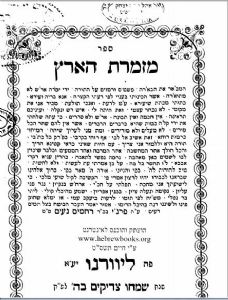"Thus shall you bless the people of Israel. Say to them: The LORD bless you and protect you". The blessings were all said in the singular (you), to indicate that it is when they (the nation of Israel) are unified that they merit the blessing, but not when they are separate from each other in their hearts. The merit of the blessing "Thus shall you bless" originates in Abraham, about whom it is written, "So shall your offspring be". It (the Priests' Benediction) says, "will grant you peace", meaning that the blessings are of no use unless there is peace among them. End quote. Abraham represents the attribute of charity, as the text says, "charity to Abraham" and it is the place of love, as the text says, "love of charity". It also says, "The offspring of Abraham are those who love Me", so that the blessing will come about by means of the love and unity between them, in keeping with what the Benediction says, "and He will love you and bless you". They also said that "The Holy One, blessed be He, found no vessel to hold Israel other than peace", which is why the Priests' Benediction ends with "peace", and the cantor, after the word "peace" is recited by the priests, begins Sim Shalom ("Bring peace"), and ends with peace (Oseh shalom).
MeZimrat Ha'aretz, p. 199, Or Shalom Press, Bat Yam, 2000
